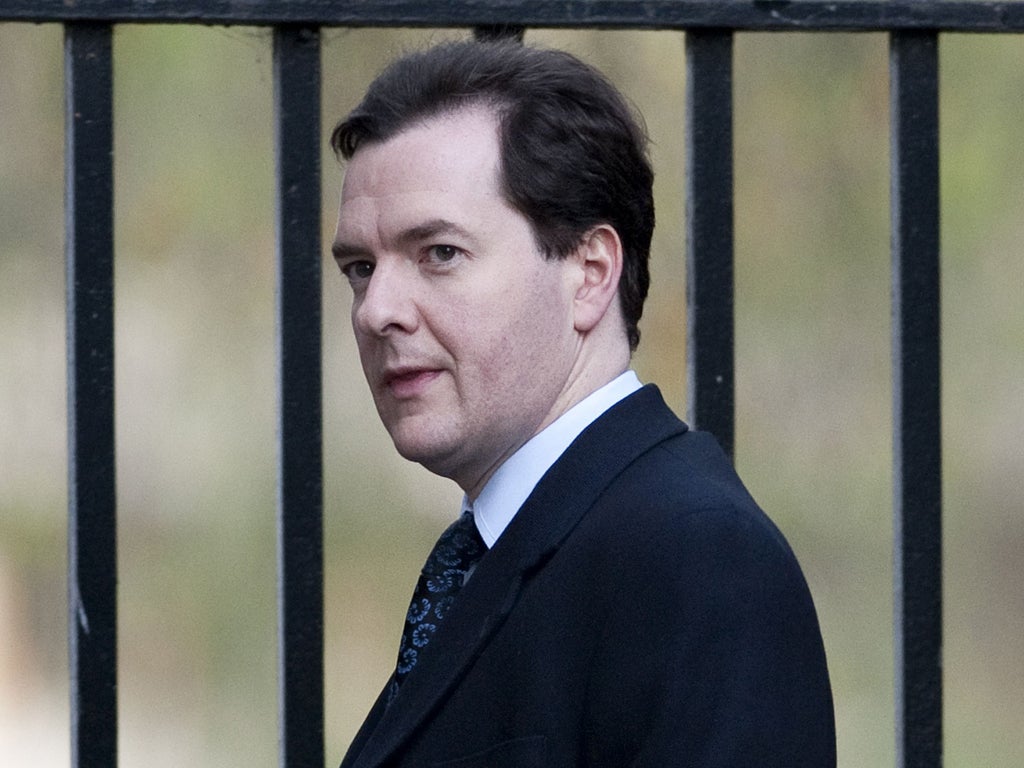Andrew Grice: Osborne: the SNP's secret weapon
Inside Westminster


"Westminster Eton Toff will not decide our referendum," wrote Angus MacNeil, the Scottish National Party MP for the Western Isles, after David Cameron lit the touchpaper for a debate on Scotland's future which could end with the United Kingdom splitting apart.
The Prime Minister called for a referendum on Scottish independence "sooner rather than later". He suspected Alex Salmond, the wily SNP First Minister, who won a mandate for a referendum in last May's Scottish Parliament elections, was going to announce his timetable soon – and wanted to get his retaliation in first.
Of more importance to Mr Cameron, than the referendum date, was to undermine the SNP's vague fall-back plan for the ballot paper to include "devo max" (devolution max) – which could involve transferring powers, except foreign and defence policy, from London to Edinburgh. Mr Cameron knew there would be a price to pay for his surprise intervention. Mr Salmond has been setting the Scottish political agenda for years and is the past master of whipping up any interference from London. Yesterday, while offering talks with the Government on the details of the referendum, he barked: "Bullying and hectoring the Scottish people from London ain't gonna work."
No doubt some Scottish voters were miffed by Mr Cameron's attempt to influence the plebiscite. But the backlash might not have been as great as Mr Salmond hoped. People in Scotland who have been unwilling to put their head above the parapet may be braver hearts now that a debate on the merits of independence has begun.
Mr Salmond was forced to rush out his preferred date of autumn 2014. For once, he was not calling the shots.
The debate on whether to keep the 300-year Union between England and Scotland will be a dominant feature of British politics for the next three years.
What matters, of course, is public opinion north of the border. But the role of London-based politicians will be crucial in shaping it. I am not sure the Conservatives realise just how damaged their brand remains in Scotland. They should have got the message after the 2010 election, when they were left with just one seat. They held 21 in 1983, when Margaret Thatcher won her biggest majority. Revealingly, Mr Salmond attacked Mr Cameron's gambit as "Thatcheresque". The Tories toxified themselves in Scotland when Baroness Thatcher used it as a laboratory for the Poll Tax. Many Scots not even born when she was PM would never dream of voting Tory. The Liberal Democrats agree. They have a proud tradition in Scotland but some of the Tories' toxicity rubbed off on them when they hopped into bed with Mr Cameron in 2010. The Lib Dems lost 12 of their 17 seats in last year's Scottish elections and have none left on the Scottish mainland. Nick Clegg is well aware that his party cannot be in the front line of the campaign to save the union. He is grown up enough to argue for it to be led by Labour. Labour's devolution strategy was in tatters when the SNP won an overall majority last May. Yet it remains the only credible alternative to the SNP.
Senior Lib Dem and Labour figures were appalled by the way Mr Cameron launched his challenge to Mr Salmond last weekend. Nor did they think it was clever to announce that George Osborne would mastermind the fight against independence. The Chancellor's skills as a strategist are admired but the Lib Dems want him deployed in the backroom, rather than as a front of house performer. Yet Mr Osborne popped up on ITV News on Thursday to launch the Cabinet's first full-frontal assault on the SNP's plans.
Of course, the economics argument will be central. But Mr Osborne is not the best person to make such arguments. Ditto Mr Cameron, whose Scottish name may be of little value in the "battle for Britain". His great-great-grandfather Ewen lived in Scotland, as did Ewen's son Ewen Allan for part of the time – albeit in a castle in Aberdeenshire. He was a stockbroker, like Mr Cameron's grandfather and father. On a visit to Scotland this week, Caroline Spelman, the Environment Secretary, told The Herald newspaper in Glasgow that Mr Cameron would be an asset rather than a liability to the anti-independence campaign. OK, she was not going to say the opposite. But if senior Tories really believe it, then the campaign will be in trouble.
Mr Cameron and Mr Osborne have their attributes. But Tory sceptics of their modernisation strategy for the party often doubted whether "two posh boys" were the right ones to execute it. They are certainly not the right ones to lead the crucial fight to save the Union.
Join our commenting forum
Join thought-provoking conversations, follow other Independent readers and see their replies
Comments
Bookmark popover
Removed from bookmarks